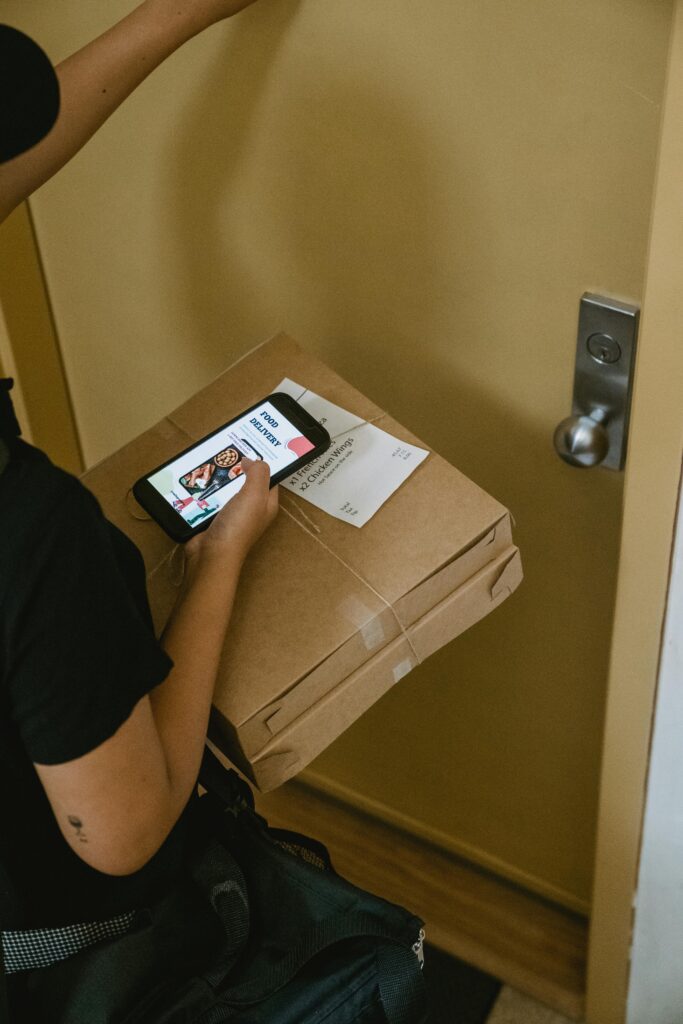As drivers struggle,
Seattle should scrap gig-worker law
By Sal Rodriguez | April 12, 2024
Back in May 2022, the Seattle City Council approved so-called “PayUp” legislation imposing minimum wage standards on app-based delivery services. Under the rules, app-based delivery drivers must be paid a city-established minimum per minute and per mile. At the time of its passage, city officials and activists alike argued the rule was necessary to help delivery drivers make ends meet.
“App-based work is one of the fastest growing sectors of our economy with more workers turning to this type of work,” argued Councilmember Lisa Herbold. “The passage of this legislation will help tens of thousands of delivery workers make ends meet while maintaining their flexibility.”
In January 2024, the mandate went into effect, with delivery drivers now entitled to make $26.40 per hour under the PayUp formula. The results have not quite been what Councilmember Herbold anticipated. In order to accommodate the higher wage mandates, the impacted delivery app companies imposed $5 fees on orders in Seattle to absorb the costs of the mandates. Within weeks of implementation, business owners and delivery drivers alike reported a sharp drop in orders and, by extension, the ability to earn a living.
“January was the first time we’ve lost money in a very long time, since COVID, so it’s just not going to be sustainable for us to keep doing that,” restaurant owner Uttam Mukherjee told KOMO News. According to Mukherjee, orders were down 30% compared to the prior year.
“I can’t pay rent. It’s down 30 to 40%. I’m one of the lucky ones. I know people who make $12 in one day,” a delivery driver told local outlet King 5 News. Far from being isolated stories, these kinds of reports have emerged from virtually every relevant stakeholder group.
Drive Forward Seattle, a group which advocates for independent delivery drivers, has observed, “The themes we’ve heard again and again from our members are fewer offers, fewer and lower tips, and more drivers on the road – all contributing to a drastic reduction in earnings. The reduced earnings are so extreme, a few members told us they are worried about making rent payments. This law was supposed to boost driver pay according to its proponents, not boost homelessness.”
The impacted delivery companies have likewise shared their findings on the early impact of the law. “Over just two weeks since the pay regulations launched, consumers have placed 30,000 fewer orders on the DoorDash Marketplace, and we expect this volume loss to compound even more over time,” reported DoorDash. “Seattle businesses are now grappling with a significant decline in revenue and lost exposure to new customers.”


Uber echoed these findings, reporting that “after the introduction of PayUp in January 2024, couriers are spending on average 30% more time waiting for delivery requests than before the ordinance went into effect. We don’t see a similar shift for couriers in other US markets.”
Local bakery owner Tonin Gjekmarkaj, in a recent commentary for the South Seattle Emerald, summed up the issue well: “The Seattle City Council stepped way out of bounds again with this law that they didn’t think through. They didn’t do their homework to determine what restaurants really need, and now consumers, businesses, and independent app-based delivery workers are all paying.”
Fortunately, many on the City Council are considering reversing course. Council president Sara Nelson has reportedly been working on a possible compromise rolling back some of the excesses of PayUp. “I’m not going to redo the whole legislation,” Nelson told GeekWire. “I want to make changes that will reduce the cost of delivery so that people start ordering again, at the same levels they were before.”
Directionally, that’s obviously better than the current state of affairs, which harms everyone involved. But the best thing the Seattle City Council could do is scrap the mandates completely.
The city of Seattle and the broader region is one of the most highly educated areas in the country. The City Council, then, is likely to be made of bright, educated people. But that doesn’t mean the Seattle City Council, even collectively, has the wisdom to tinker with markets in just the right manner. The good intentions of the council in 2022 have clearly backfired and have yielded economic damage to consumers, businesses and drivers alike.
No one doubts the good intentions behind PayUp. But it’s clear that Seattle city government officials are out of their depth in trying to devise the proper pay for delivery drivers. Delivery drivers perform a service for which they should be compensated. Companies like Uber and DoorDash have provided a straightforward means by which people can easily get into the delivery business and clearly have a better sense of how to pay people enough for them to do it.
The best thing for the Seattle City Council to do is to recognize the failure of meddling, repeal PayUp and refocus their attention on more practical matters.
Sal Rodriguez is opinion editor for the Southern California News Group and a senior fellow with the Pacific Research Institute. He is the author of Dynamism or Decay? Getting City Hall Out of the Way, published by the Pacific Research Institute.

